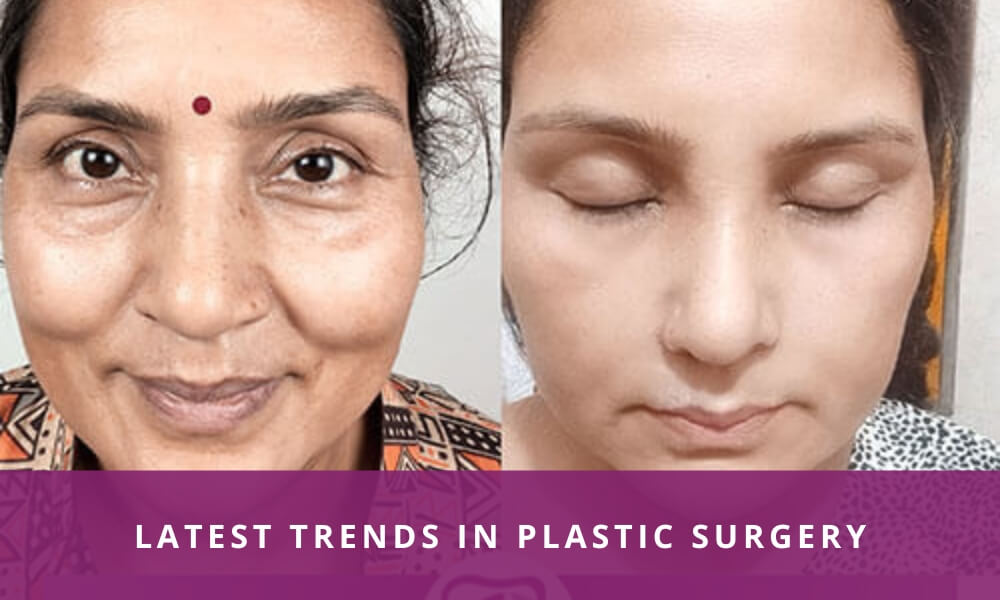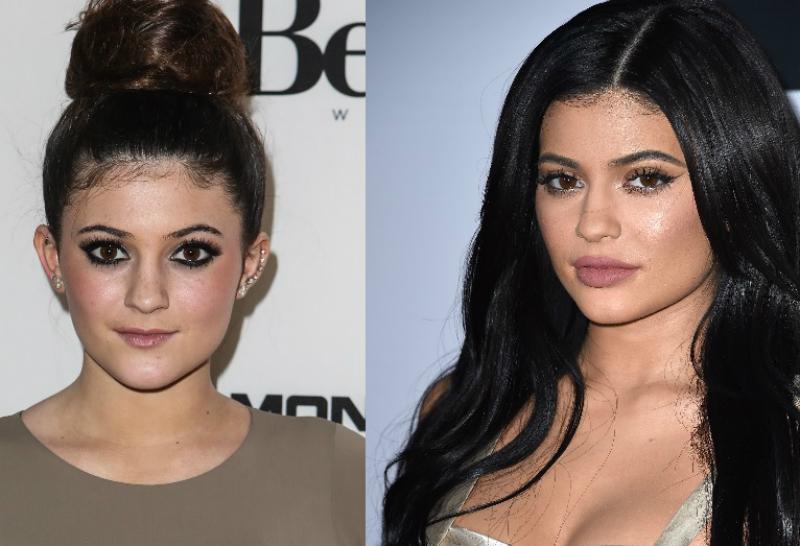Mommy Makeover Rancho Cucamonga: Recover Your Younger Figure with Professional Procedures
Mommy Makeover Rancho Cucamonga: Recover Your Younger Figure with Professional Procedures
Blog Article
Exploring the Mental and Social Elements That Drive Individuals to Consider Cosmetic Surgical Treatment as a Method of Improvement
The choice to go after cosmetic surgical treatment typically extends beyond mere aesthetic appeals, linking with social and mental dynamics that merit detailed examination. Factors such as self-confidence, pervasive societal charm criteria, and the prevalent impact of social media assemble to form private motivations for surgical improvement. As these influences come to be progressively popular, comprehending the underlying cultural and emotional contexts is vital. What stays to be checked out is the extensive influence these aspects have not only on personal identity yet additionally on more comprehensive social standards and values surrounding charm and acceptance.
The Duty of Self-Esteem
Self-esteem substantially affects an individual's choice to seek plastic surgery. People with reduced self-confidence frequently regard themselves in an unfavorable light, leading to sensations of inadequacy concerning their physical appearance. This adverse self-perception can drive them to seek surgical treatments as an approach of enhancing their self-image. The desire for improvement in one's appearance is often connected to a belief that such changes will certainly elevate their total self-worth and self-confidence.

Eventually, the duty of self-esteem in the decision-making process regarding plastic surgery highlights the intricate interaction between body picture, individual satisfaction, and mental health and wellness. Recognizing this partnership is vital for medical care professionals to guarantee that individuals are making educated decisions rooted in sensible assumptions and emotional wellness.
Societal Beauty Criteria
Influenced by prevalent media portrayals and social narratives, societal appeal criteria play a critical duty in forming people' assumptions of their own bodies. These requirements are typically defined by an idealized kind of beauty that highlights characteristics such as slimness, symmetry, and youthfulness. As these suitables are bolstered via various channels, consisting of movie, advertising, and television, individuals frequently internalize these messages, resulting in discontentment with their natural appearance.
The effects of these societal norms expand beyond visual preferences; they can affect self-worth, mental health, and social connections. People who regard themselves as disappointing these criteria may experience sensations of insufficiency, triggering a wish for plastic surgery as a way of accomplishing societal authorization. This pursuit is usually fueled by the belief that satisfying these perfects will certainly boost not just physical appearance however likewise social standing and personal fulfillment.

Impact of Social Media
The influence of societal appeal standards is additional amplified by the increase of social media platforms, where curated pictures and idyllic representations of appeal are common. Individuals are frequently exposed to filtered and edited photos, which often illustrate unattainable physical features. This exposure cultivates a culture of comparison, leading people to analyze their own look against these often impractical criteria.
Social network influencers and celebrities often advertise aesthetic treatments, stabilizing the idea that medical improvements are a viable means for achieving societal perfects (plastic surgery rancho cucamonga). The exposure of these improvements can develop an understanding that going through cosmetic surgical treatment is a typical method, therefore affecting people to take into consideration comparable interventions as a pathway to improved self-confidence and social acceptance
In addition, the interactive nature of social media enables for prompt feedback through likes and comments, even more strengthening the wish to satisfy prominent appeal requirements. Such interactions can worsen sensations of insufficiency and drive individuals towards plastic surgery as a method of obtaining recognition. Inevitably, social media sites plays a critical role fit understandings of elegance, which substantially influences the decision-making processes bordering plastic surgery.
:max_bytes(150000):strip_icc():focal(745x123:747x125)/botched-plastic-surgery-drunk-surgeon-tout-010424-1d80c7b734e942eb8f0953dc13be8ee0.jpg)
Social Point Of Views on Look
Across numerous cultures, perceptions of appearance are deeply rooted in historical, social, and economic contexts, shaping people' views on charm and worth. In lots of cultures, appearance functions as a significant pen of identification, affecting social condition, professional chances, and personal partnerships. For instance, in some societies, light skin is frequently connected with wide range and benefit, while others may glorify darker complexion as icons of stamina and authenticity.
In addition, standard appeal standards are frequently bolstered with cultural stories, media representations, and family members influences, bring about differing ideals throughout different regions (plastic surgery rancho cucamonga). In Western cultures, why not try here the focus on young people and physical conditioning commonly drives people towards aesthetic improvement, while in specific Eastern societies, more subtle modifications straightened with typical looks might be chosen
Globalization and the proliferation of digital media have actually better made complex these dynamics, developing a hybridization of elegance suitables that goes beyond geographical boundaries. As people progressively browse these cultural stories, the stress to adapt to specific appearance criteria can result in the need for cosmetic surgical treatment, reflecting a complicated interplay of personal desires and cultural values. Recognizing these cultural point of views is essential in resolving the motivations behind cosmetic surgical treatment factors to consider.
Emotional Impacts of Aesthetic Surgical Procedure
Several individuals looking for cosmetic surgical procedure record experiencing extensive psychological effects that can dramatically alter their self-perception and emotional wellness - plastic surgery rancho cucamonga. The wish for physical see here improvement often stems from underlying concerns such as reduced self-worth, body dysmorphic problem, or social stress regarding elegance standards. For some, the immediate post-operative stage can lead to a temporary increase in confidence and contentment with their look, promoting a sense of empowerment
However, these favorable feelings may not be sustaining. Study suggests that while some clients experience improved self-esteem, others may face elevated stress and anxiety or depression if their assumptions are not satisfied. This inconsistency can emerge from impractical ideals continued by media depiction and social narratives surrounding appeal.
Moreover, the psychological implications of plastic surgery prolong past the individual. Relationships with friends and family may be stressed as social dynamics change, leading to sensations of seclusion or alienation. Eventually, the emotional effects of plastic surgery are intricate and multifaceted, requiring mindful consideration by both possible clients and healthcare carriers to guarantee informed decision-making and practical assumptions.
Verdict
To conclude, the decision to seek plastic surgery is substantially affected by a mix of self-confidence issues, societal appeal standards, and cultural perspectives on appearance. The prevalent reach of social networks even more aggravates these pressures, promoting unrealistic suitables that people usually strive to achieve. Comprehending these emotional and social variables is essential for dealing with the motivations behind cosmetic surgical treatment, highlighting the demand for an extra nuanced conversation surrounding beauty and self-acceptance in contemporary society.
The decision to go after cosmetic surgical procedure usually extends past plain aesthetics, linking with mental and social dynamics that merit extensive assessment. Eventually, social media plays a critical role in shaping assumptions of elegance, which significantly impacts the decision-making processes surrounding cosmetic surgical treatment.
As this content individuals significantly navigate these social stories, the stress to adapt to particular appearance standards can lead to the desire for cosmetic surgery, mirroring an intricate interaction of personal desires and social values.In final thought, the decision to pursue cosmetic surgical procedure is significantly influenced by a mix of self-worth concerns, societal elegance criteria, and cultural perspectives on look. Comprehending these social and emotional elements is vital for dealing with the inspirations behind cosmetic surgical procedure, highlighting the requirement for a more nuanced conversation bordering charm and self-acceptance in contemporary society.
Report this page